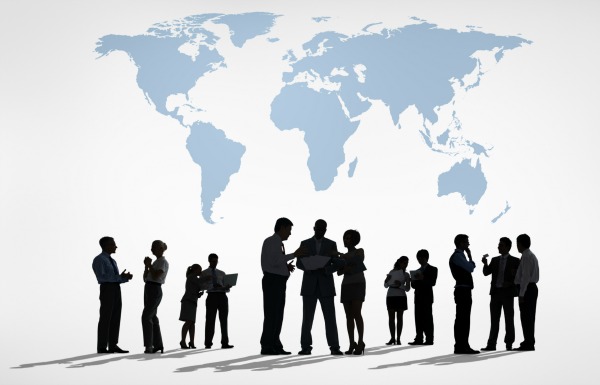We recognize that working alone, our investments —and even the financial resources of all philanthropy—are insufficient to solve large-scale issues. We believe we can have the greatest impact by leveraging our flexibility, solutions-focus, and ability to make big bets in partnership with existing systems such as government, civil society, other funders and providers in the communities they serve. Rather than being daunted by big challenges, we have the optimism and courage to seek bigger solutions.

We see opportunity in aligning ourselves with visions that foster collaboration – such as the Sustainable Development Goals and similar community-wide frameworks – and participating in action networks that seek to accomplish those goals. Our program staff plays a leadership role that connects the work of our partners to these larger frameworks and high- level goals. The nimble funding afforded by philanthropy allows us to contribute to areas that are traditionally underfunded, take risks, make bold investments, convene partners, and catalyze long-term change.
Our strategy is to build a solid base by working with key partners in the field, but also engaging those with an entrepreneurial spirit like our founder who dare to pilot new solutions, understand unmet needs, advance knowledge in the field and catalyze long term change. We support this work through our leadership, as well as traditional grants and program-related investments, but are constantly looking for innovative ways to leverage our funds.
We recognize the power of aligning ourselves with community-wide and global visions that foster collaboration and a shared sense of optimism, allowing us to leverage our collective resources to achieve impact.
By working together, we can channel and share our different strengths and points of view, enabling us to look at issues from a fresh perspective, and allowing us to accomplish things together we could never do independently.
There are several ways in which we are leveraging our relationships with partners in the public and private sectors to maximize the impact of our grant dollars. For nearly 30 years, the Hilton Foundation has invested in efforts to end chronic homelessness, and we have worked hard to contribute to the building of a broad coalition involving government, business, and civil society. We were pleased to see the recent passing of two key ballot measures in support of ending homelessness in Los Angeles, which together will provide more than $4 billion over the next ten years for housing and services to end and prevent homelessness.
Below are a few examples of collaboratives and partnerships our staff is actively involved in, and ways in which we have leveraged public funds for maximum impact:
- Sustainable Development Goals: We are a philanthropic leader towards the achievement of the Sustainable Development Goals (SDGs), an ambitious framework for global development through 2030 to end poverty, fight inequality and ensure access to public goods like clean water. There is immense potential held by participating in action networks that seek to solve these critical needs, and our program staff plays a leadership role that connects our partners’ work to these larger frameworks and high-level goals.
- Home for Good Funders Collaborative: The Hilton Foundation’s $1 million challenge grant to Home For Good helped to launch the Funders Collaborative, a community plan to end chronic homelessness. Since the first RFP in 2012, the public and private sector have coordinated these resources through one annual shared RFP process. Over those years the Hilton Foundation has committed more than $8 million to the collaborative. Totals are $34M in private funding and $966M in public resources.
- Coalition for Young Children Affected by AIDS: The Coalition for Children Affected by AIDS believes that children need to be made a higher priority in the international response to HIV and AIDS. The Coalition brings funders and technical experts together to advocate for the best policy, research, and programs for children because children are a vulnerable population that has too often been overlooked.
- Connecting Business initiative (CBi): The Hilton Foundation is a key partner in the Connecting Business initiative. UNDP, in coordination with the United Nations Office for Disaster Risk Reduction (UNISDR) and the United Nations Office for the Coordination of Humanitarian Affairs (OCHA), set up the Connecting Business initiative, which addresses the demand for a more strategic engagement of the private sector as an equal partner, both globally and locally, with the international community and governments. The CBi takes the expressed interest from the private sector and offers a clear entry point for the private sector, governments, civil society and humanitarian and development actors to connect, collaborate and co-create ideas to achieve development goals and promote a more holistic response to disasters and conflicts.
- Youth Transition Funders Group: Youth Transition Funders Group (YTFG), a national network of funders that work together to support the well-being and economic success of vulnerable young people age 14 to 25. The group seeks to ensure that all young people have lifelong family, personal, and community connections and the opportunities and tools to succeed throughout adulthood.
- Funders Concerned about AIDS: Funders Concerned About AIDS (FCAA) is the leading voice on philanthropic resources allocated to the global AIDS epidemic. The group provides funders with the data necessary to make informed decisions on HIV/AIDS funding. In addition, FCAA galvanizes the philanthropic sector to work collaboratively, transparently, and urgently to drive robust, focused, funding for evidence-based interventions in the treatment and prevention of HIV infection.
- Early Childhood Development Action Network: The World Bank and UN Children’s Fund (UNICEF) recently established an alliance to prioritize action and investments in early childhood development (ECD) as a foundation for equitable development and economic growth. The alliance aims to support country-led efforts to invest in nutrition, early stimulation and learning and protection for every child, and is expected to contribute to achieving the Sustainable Development Goals (SDGs) on poverty reduction, health and nutrition, women and girls, equality and ending violence.